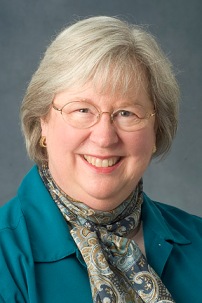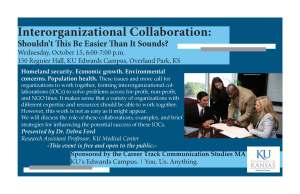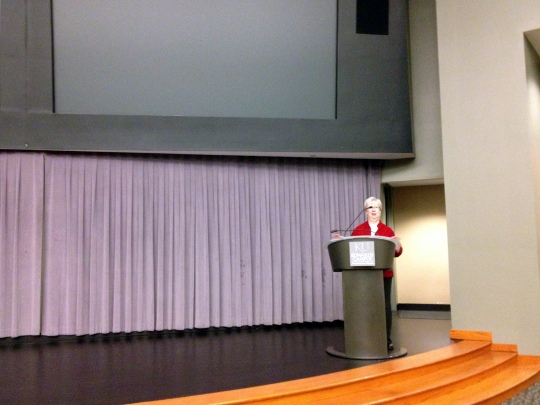The Human Side of Business
Events
You’re Invited! Interorganizational Collaboration Talk at Edwards on October 15
Please join us on Wednesday, October 15 from 6:00 to 7:00 p.m. in 150 Regnier Hall at KU’s Edwards Campus in Overland Park for “Interorganizational Collaboration: Shouldn’t This Be Easier Than It Sounds?”
Professor Debra Ford of KU’s School of Nursing and the Communication Studies Department will lead a discussion on how organizations can collaborate more effectively to face major social challenges. RSVP’s on Facebook are welcome.
We look forward to seeing you on the 15th!
Making Communication Technology Work for You at Work
 Dr. Tracy Russo, the director of the Communication Studies MA program at the Edwards Campus, delivered a talk last month titled “Making Communication Technology Work for You at Work” as part of the KU Edwards Campus’s Professional Edge series. The turnout was fantastic: over 80 people showed up to learn more about the challenges and benefits associated with communication technologies in the workplace.
Dr. Tracy Russo, the director of the Communication Studies MA program at the Edwards Campus, delivered a talk last month titled “Making Communication Technology Work for You at Work” as part of the KU Edwards Campus’s Professional Edge series. The turnout was fantastic: over 80 people showed up to learn more about the challenges and benefits associated with communication technologies in the workplace.

Tracy Russo, Communication Studies. ©The University of Kansas/Office of University Relations. Credit: Doug Koch.
Professor Russo’s take-away was simple, but it’s one that not all of us think about every day: “The technology isn’t the communication—your message is the communication.” She argued that there is no such thing as an inherently bad or good method of communication, just media that are more or less effective in different contexts.
After reviewing the affordances and social costs of the most common types of communication technology—in-person meetings, phone calls, texting, voice mail, paper, and email—Professor Russo pointed out that workplace cultures can occasionally get “stuck” on various types of communication to their detriment.
For example, if two office mates are emailing each other while they’re sitting in the same room, then they’re probably missing out of the efficiency and relationship-building capabilities of speaking face-to-face. Similarly, if an office tried to communicate entirely by in-person meetings without relying on email or paper, there would be a lack of record-keeping on what was being done and efficiency would be eaten up by a constant stream of meetings.
Professor Russo encouraged the audience to avoid depending too much on one mode of communication and to always remember the social costs and social benefits of each communication technology. She proposed four essential rules for efficiently communicating with others:
1) “Take the time to focus on the purpose of the communication—not for you, but for the receiver of the message.” What will your recipient get out of the message that could benefit him or her? Thinking in this way will ensure that your messages always have a “hook” for your audience.
2) Consider your audience and personalize the message to their needs, preferences, and limitations. Sending out the same message in the same way to a large group of people guarantees that at least some individuals will get left behind.
3) Choose your medium strategically, keeping in mind the message, what action you want the other party to take, and the other party’s needs and preferences. What can be conveyed effectively in a text message, an email, and a meeting are all very different!
4) Stop and think before you send the message. Give yourself the time to consider its layers and implications. Those few extra seconds each day will lead to much greater effectiveness and stronger relationships in the long run.
Do you have any tips of your own related to communication and technology in the workplace? Share them with us in the comments!
Edwards Campus Info Fairs
Have you ever been to an Edwards Campus Info Session?
In the Com. Studies program, we see these events as an opportunity to tell prospective students about our degree and how going back to school can fit into their lifestyles.
We love to answer prospective student questions like “Can I take classes and still work full time?”, “How long will it take to earn my MA?”, and “What can a COMS degree do for me?”, but what we like best about the Info Fairs is meeting new people, discovering their goals and interests, and figuring out how KU can work for them.
So come on by! It’s not too early to register for our next Info Fair on Thursday, October 20th!


